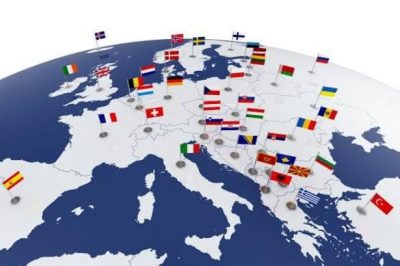The rise of nationalism in recent years has led to a decline in the effectiveness of international organizations and global cooperation. The future of multilateralism is at stake, and it is essential to analyze the current trends in global politics to understand how they impact the effectiveness of international organizations and global cooperation.
According to a report by the Geneva Centre for Security Policy, there will be extensive and potentially divisive debates about the need to reform the multilateral system over the next eighteen months.
The report suggests that the top priorities must be boosting international investment in achieving the Sustainable Development Goals and alterations to the International Financial Institutions (IFIs) to make them more responsive to the needs of poor and middle-income countries.
The report also suggests that member states should take a far-sighted view and set up mechanisms to protect the interests of future generations in economic and environmental policymaking.
The rise of nationalism has led to a decline in the effectiveness of international organizations and global cooperation. Nationalist leaders have been reluctant to engage in multilateralism, preferring to pursue their interests. This has led to a lack of collaboration between countries, which has made it difficult to address global challenges such as climate change, terrorism, and economic inequality.
Also Read: President Alvi reaffirms Pakistan’s commitment to CPEC development
However, there are still reasons to be optimistic about the future of multilateralism. The United Nations Secretary-General António Guterres plans to convene world leaders for a “Summit of the Future,” set for 22-23 September 2024, to discuss how to reconstruct international institutions to face current and future challenges.
The range of possible reforms is daunting, but addressing flaws in the existing multilateral peace and security architecture is essential. As part of the preparations for the Summit of the Future, a High-Level Advisory Board on Effective Multilateralism appointed by Guterres released a report on 18 April 2023.
This included proposals for overhauling existing multilateral security institutions and developing new arrangements to deal with looming issues such as the rise of new weapons technologies.
The future of multilateralism is at stake, and it is crucial to analyze the current trends in global politics to understand how they impact the effectiveness of international organizations and global cooperation. While the rise of nationalism has led to a decline in the effectiveness of international organizations and global collaboration, there are still reasons to be optimistic about the future of multilateralism.
The Summit of the Future, 22-23 September 2024, is an opportunity for world leaders to come together and discuss how to reconstruct international institutions to face current and future challenges.

I am Bushra Tahir. Doing BS in International Relations from National University Of Modern Languages ( NUML).









2 responses
Kudos on your insightful article
Informative opinion about rise of multilateralism….